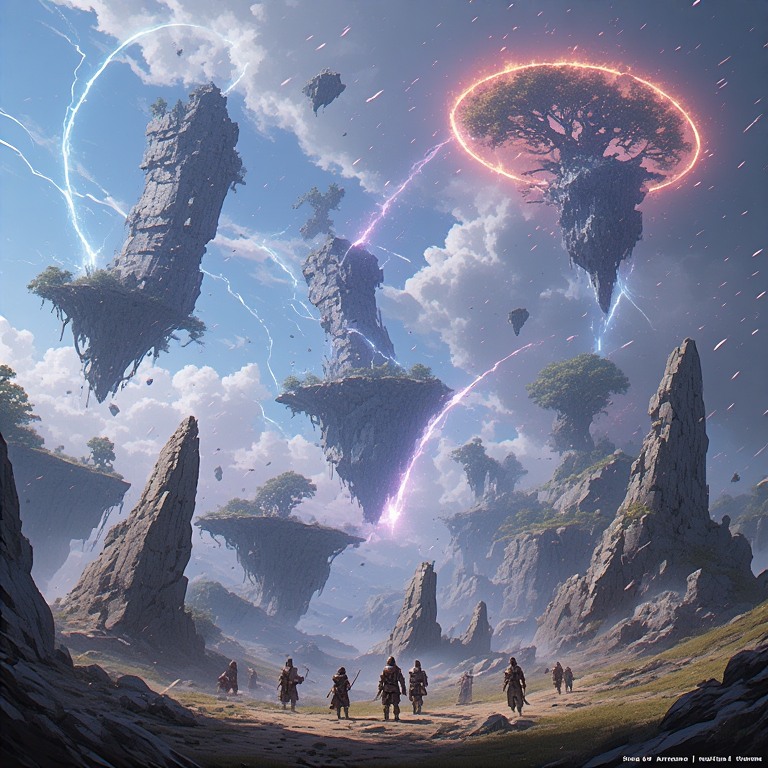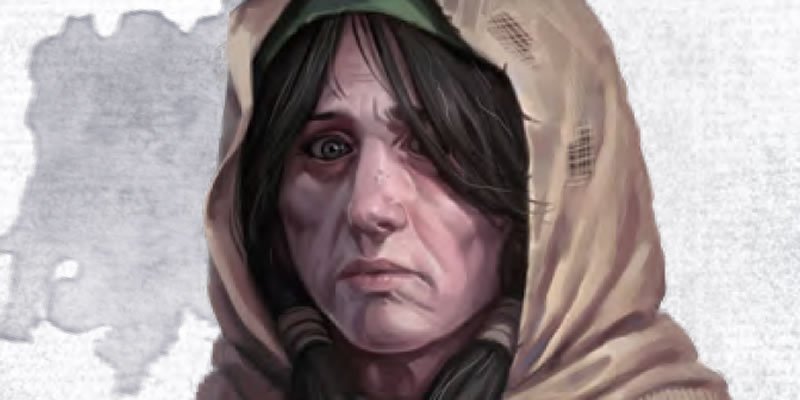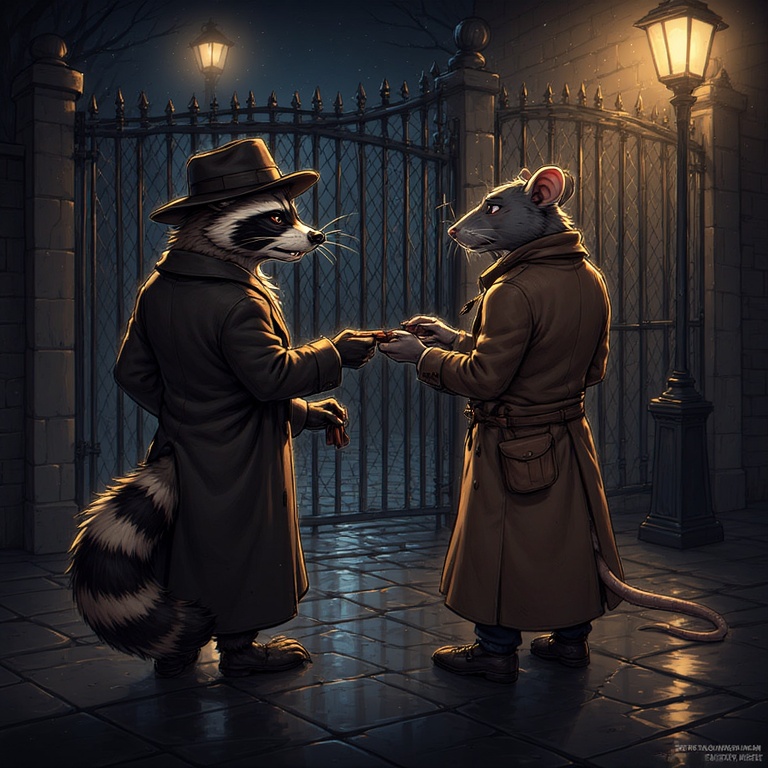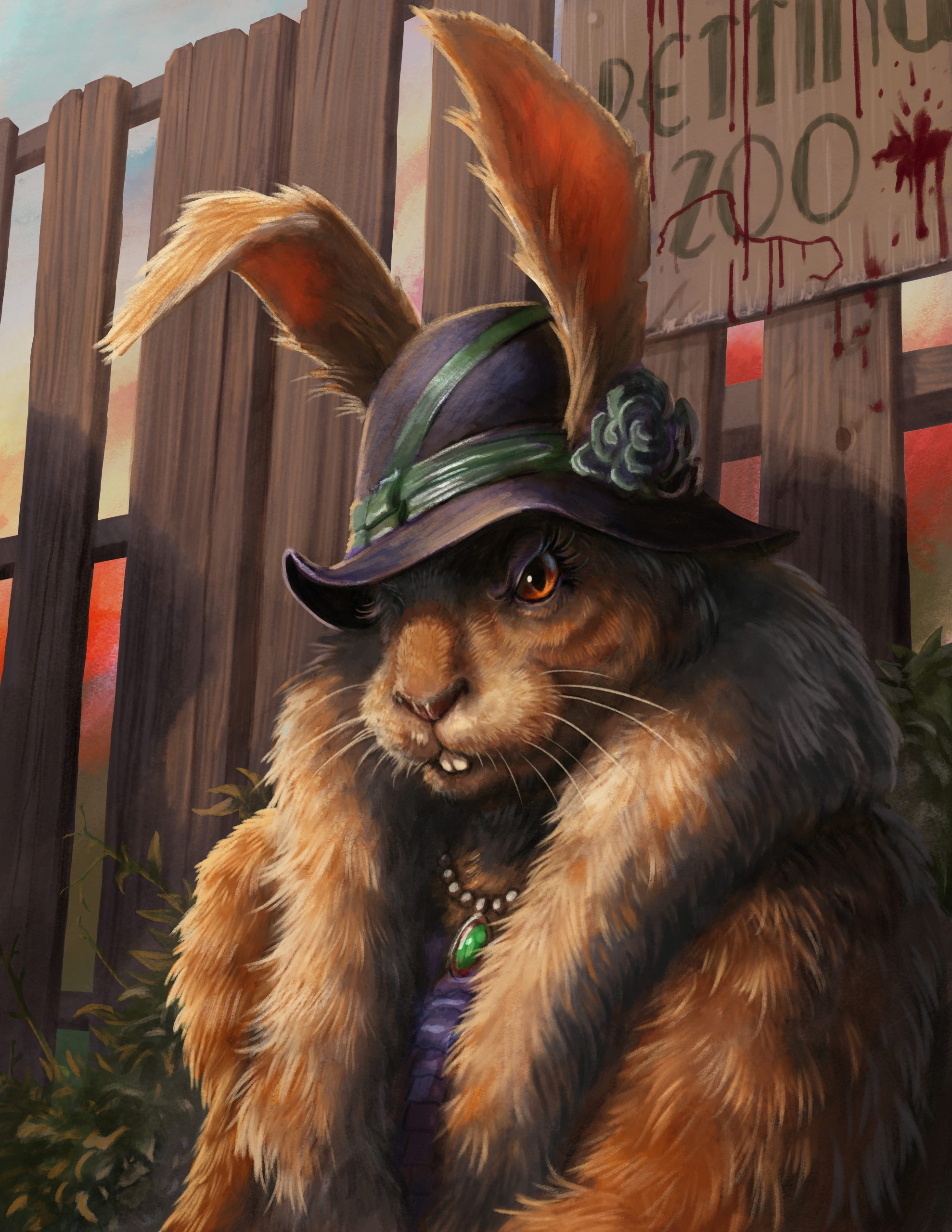
Running a Successful DMPC
 Running a DMPC (Dungeon Master’s Player Character) is not an easy thing to balance, I will give you that. The DMPC is a tricky and unique animal. But it’s not fair to say “never do this, not ever.” I’ve seen them done well, and as someone who plays in a lot of hot seat games, have been in a good many situations where running a DMPC has even been necessary.
Running a DMPC (Dungeon Master’s Player Character) is not an easy thing to balance, I will give you that. The DMPC is a tricky and unique animal. But it’s not fair to say “never do this, not ever.” I’ve seen them done well, and as someone who plays in a lot of hot seat games, have been in a good many situations where running a DMPC has even been necessary.
In a nut shell, that’s a game where the players take turns DMing for each other. And in a case like that, you have to find something to do about your character when you’re the one DMing. We never wanted to miss out on the experience points for the encounter we planned, so the answer to that was almost always just bringing them along. I also play in a lot of play-by-post online games where the DM running a player character is also far more commonplace.
In cases like that, we actually do run arcs for our own characters all the time. It’s to be expected. But in a regular game where you are the only DM, it gets more complicated. You really have to curb the desire to make yourself the protagonist.
So instead of saying “don’t do it,” I’m going to give this a go and give some honest advice on running a DMPC in your party. It’s difficult, but it is certainly not impossible to DM and play a character at the same time without being a boosted animal about it.
How to Design Your DMPC
You cannot treat a DMPC like they are basically a PC.
 They are part of the narrative. They care about the outcome. But when you are DMing you have to be a DM first and a player second. You have to be willing to let your character take a back seat. If you are having trouble keeping up, they will be the first thing you have to let drop.
They are part of the narrative. They care about the outcome. But when you are DMing you have to be a DM first and a player second. You have to be willing to let your character take a back seat. If you are having trouble keeping up, they will be the first thing you have to let drop.
They can’t solve puzzles, you already know the answers. They can’t do social encounters because that would leave you talking to yourself. They can’t react organically to what is going on because you already know what that is going to be.
But they can make suggestions. They can throw in their two cents while the other PCs are talking, council them and act as a sounding board when other PCs are coming up with ideas. They can participate in combat. They can cast spells and buff the party.
What makes your DMPC different from an ordinary NPC is that they have a stake in what is going on in the game along with the rest of the party. They will want the PCs to succeed and will do everything they can to see it happen. They are not just an ordinary ally. To that end, make sure your players know what their skill sets are.
Consistency is the key here. It falls under the same rule you have in literature; build everything up. If your players know what this character can do, they will not be surprised when they do that thing to help the party. Pick one or two things, make sure the party knows what they are, and then do those things.
This is so much easier with a smaller party that might not have all its bases covered. Make this character to balance with the party. If they require a healer, consider rolling a cleric. If they don’t already have a bard, consider making one with support spells. An intelligent NPC can be an exposition machine that, if the players are interested, could tell them about the history of the places they are in.
Make sure the DMPC is reliably flawed as well. Pick something you can have them do consistently that won’t be in the way. My friend Shannon played a kobold monk once that just really didn’t like to get dirty, for example. Situations where this came into play were not constant, but every once in a while we would find ourselves in a dusty place and everyone would look at Reyal and we already knew without him having to tell us that we were going to have a small problem.
Phobias are a good way to handle this. Say your DMPC is afraid of water or snakes. Make it something that counts, but not enough that they have to deal with it every single session. Maybe they just have this thing where if there’s a gnome involved they do not want to talk to them. Maybe they’re in debt from gambling and sometimes members of the thieves guild show up and give the party trouble.
But also remember that this is just like any other tool in your DM’s box. You do not want to use it for everything. Three times is enough to establish a pattern of behavior, and after that just let it come up when it happens to come up.
How to Introduce your DMPC
Do not have your DMPC rescue the party. Once again for those of you in the back: Do not have your DMPC rescue the party.
 If you shoehorn the party into a situation where somebody else has to rescue them, they are not going to be okay with that. They will be right not to be okay with that. If you send them into a situation where no matter what they cannot wiggle their way out without help, you are taking away the agency of your players and that makes the game not fun.
If you shoehorn the party into a situation where somebody else has to rescue them, they are not going to be okay with that. They will be right not to be okay with that. If you send them into a situation where no matter what they cannot wiggle their way out without help, you are taking away the agency of your players and that makes the game not fun.
It’s totally okay if your party has to rescue your DMPC, though. You are creating fun for your friends. That is still your primary job. It’s okay for you to want to have fun, too, but they are the big damn heroes and your time will come organically somewhere down the road.
My advice is to just be up front about it. Tell them this is your character and have them meet up with the rest of the party at the same time they get together. If you try to lie and pretend this isn’t your character, your players will still know. It’s the funniest thing, but people don’t like being lied to.
Or if you absolutely have to set it up, like if you’re in the middle of a campaign already and the PCs already know each other, for example, use their introduction as a character-establishing moment and start with the flaw.
Think about the scene in A Knight’s Tale when you first see Chaucer walking naked down the road because he lost his clothes in a bet. He’s definitely doing something weird and attention grabbing, but he’s not outshining the party. He then ends up useful to them (forging papers and talking up the crowd). Really, if you’re looking for a good example of what a DMPC should be like, Chaucer is it.
Someone swooping in and trying to lord over the PCs with how much better they are is going to rub them the wrong way, but when they find an underdog, save his butt, and then he turns out to be a useful ally in his own way, it goes over much better.
How to Play Your DMPC
Even if you don’t have a DMPC, it’s always a good idea to be aware of how much spotlight each of your players is getting and try to make sure everybody has a fair share of it. Especially if you are carving out some for yourself.
 I don’t think there’s anything particularly heinous about that, by the way. You are running this game, it’s okay for you to also want to participate in it. Be aware, though, that you are walking a tight rope. Not just anyone can carve out a little piece of spotlight for themselves and still keep most of the focus on the other players. At no point do you want them to feel like they’re just watching you.
I don’t think there’s anything particularly heinous about that, by the way. You are running this game, it’s okay for you to also want to participate in it. Be aware, though, that you are walking a tight rope. Not just anyone can carve out a little piece of spotlight for themselves and still keep most of the focus on the other players. At no point do you want them to feel like they’re just watching you.
It’s okay for you to want to play, but you have to remember that when you are the only DM, you are the one with all the power, and that means you can’t favor yourself. The DMPC cannot outshine the party. The players would be — rightly — salty about it. On the other hand, the DMPC cannot be useless. The party will want to cut dead weight.
Design your adventures with your players in mind, just like you would if you weren’t running a DMPC. Your players are never going to forget that this character is you. Own that. There’s no shame in telling them out of character that your character can’t help them with puzzles. It wouldn’t be the first time what’s playable had to come before what was realistic.
DMPCs are a unique thing. It’s okay for them to have opinions about things, but they have to have opinions the way an NPC would. You can’t just let them be right all the time, they have to be wrong often enough that the party doesn’t lean on them or resent their presence.
They are an NPC in the sense of interacting with other characters as well. You cannot just sit there and talk to yourself for long periods of time, but it’s perfectly okay for them to quip in now and then while the rest of the party are doing it. Remember also that this is another character for the party to talk to and interact with. Take note of what the other party members are saying and doing. Have your DMPC remark about those things. Let them be a sounding board when the party is considering their options.
Keep the Focus on the Players
 Never forget that you are still the DM. It can be so easy to get lost in daydreams of cool things you want your character to do, but when you are running the game, you have to be responsible. Always put your players first.
Never forget that you are still the DM. It can be so easy to get lost in daydreams of cool things you want your character to do, but when you are running the game, you have to be responsible. Always put your players first.
If there’s too much going on in a combat, it is okay to stop and say, “Alright, to make this run more smoothly, I’m going to stick Lillith in the corner here fighting the swarm of imps that just came in through the hole in the wall.” And then you just leave her there and don’t even bother crunching numbers for that part. It is okay to leave your DMPC at the inn. If you find yourself neglecting your DMPC, that is not as much of a problem as neglecting the rest of your party.
The absolute worst thing you can do is run a game that the party can’t affect the outcome of. The most important thing is to make sure they have the agency to affect the game and the world they are in. If you run a DMPC, constantly check yourself to make sure you aren’t playing this character at the expense of the rest of your players.
If NPCs are the background characters, and PCs are the main cast, your DMPC should be a supporting character. If you’re rolling one because you want to be the star, don’t. If you’re rolling one because you want to participate and have another tool to use to interact with your party, do it. Do it and be totally open with them about it. Ask them how your driving is and take their feedback to heart.
Running a DMPC is a difficult challenge. It’s not impossible. The most important thing is that everyone is having fun. That includes you.
Related articles
[amazon_link asins=’0786965606,0786966092,B000VCFCK0′ template=’ProductCarousel’ store=’nerdarchy-20′ marketplace=’US’ link_id=’c7c2d460-08fa-11e7-96e7-392dd2a81129′]












Bronze Dog
November 29, 2017 at 11:01 pmI’m the current GM in what looks to be a sort of “Round Robin” game of Star Wars: Edge of the Empire, and this sort of thing became relevant because my former PC, Tresk, is now a DMPC. Fortunately, my instincts have lined up with a lot of the advice in this article. My character is a near-pacifist swoop racer (basically, he’s got a Star Wars equivalent of a Formula One car) in a group with three combat-focused characters.
I’ve been thinking of ways to have Tresk’s actions separated from the rest of the group, while still contributing: He’s got good Mechanics skills, so he can be building and modifying stuff on the ship while the rest of the group is out doing the legwork of the adventure. He can be the driver in a fighting speeder chase, or a high-speed go-fer / courier. I’m eventually going to have him go his own way, and rejoin the group for my adventure finale.
Doug Vehovec
November 30, 2017 at 1:36 amSounds like it’s working out well for your group with a good dynamic and a fun game. Thank you for sharing!